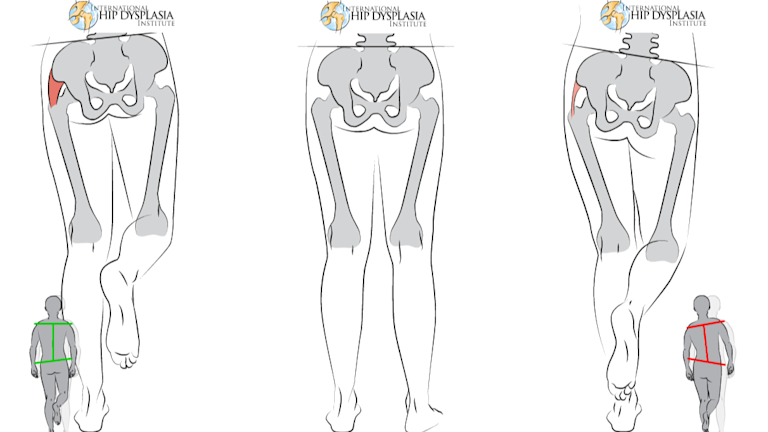Pre-Op Prep for Hip Arthroplasty (Replacement)
Once the decision is made to have hip arthroplasty (replacement), how do you help your loved one prepare for surgery?
Get insurance benefits, legal documents, and medical records in one place

Helpful Highlights
Go to the orthopedic pre-op evaluation appointment prepared with questions. This guide will help you formulate those.
The pre-op appointment includes an evaluation of not only physical status but mental/emotional and home support statuses, as well.
Based on the results of the pre-operative evaluation and tests by the orthopedic surgeon, clearance is or is not given for the surgery. The pre-op evaluation appointment will allow you to ask questions about the procedure, as well as pre- and post-surgical expectations, so be sure to come prepared.
Pre-operative visit
Not long before the date of the hip arthroplasty (replacement) surgery, the orthopedic surgeon will perform thorough physical, mental, and emotional examinations, as well as evaluate your loved one's post-op support at home. The surgeon will likely:
Ask about medical history and current medications (be sure to bring a list of ALL medications - with names, doses, and times - including over-the-counter)
Examine the problem hip, noting the range of motion in the joint and strength of the surrounding muscles
Order blood tests
X-ray of the hip and pelvis to assess the status and structure of the hip joint, and occasionally advanced imaging (CT or MRI) may be needed to assist in surgical planning
Order an electrocardiogram ("ECG" or "EKG") to establish heart rhythm
Review what is required in the 24 hours before surgery
The surgeon will also work closely with other providers, like your loved one's cardiologist, to determine what medications they may need to stop taking before surgery (and when) to decrease the risk of complications, as well as when it will be safe to resume taking these medications. This may include stopping blood thinners, aspirin, or supplements like fish oil, as these medications slow blood clotting, which could lead to an increased risk of blood loss during surgery or bleeding after surgery.
Before surgery, medical risk is assessed. The surgeon needs to make sure that the risks of hip arthroplasty (replacement) don’t outweigh the benefits. They will check for:
Anxiety and stress levels around the surgery
How well your loved one's body may tolerate blood loss
How well your loved one tolerates anesthesia
How your loved one will manage the rehabilitation process (making appointments, participating in the program, performing the recommendations)
How other medical problems may affect their healing
How active they are
How their current weight will factor in
Their lower extremities will also be evaluated before surgery. The surgeon will conduct the following:
Muscle testing
Nerve and vascular status testing
Palpation testing
General inspection
Range of motion testing
Straight leg raise test
Measure leg length
Trendelenburg sign ("positive" when, while standing on one leg, the pelvis drops toward the unsupported side, and "negative" when the pelvis remains level - it indicates weakness in the hip abductor muscles)

Visit the dentist before surgery
It’s better to have any dental work done either well before surgery or no less than three months after. The surgeon may recommend antibiotics before any dental procedure once your loved one has had a joint replacement.
RESOURCES
American Academy of Orthopaedic Surgeons (AAOS) – Total Hip Replacement
American Association of Hip & Knee Surgeons (AAHKS) – Total Hip Replacement
Johns Hopkins Medicine – Hip Replacement Surgery
No content in this app, regardless of date, should ever be used as a substitute for direct medical advice from your doctor or other qualified clinician.
Get more support and guidance on insurance benefits, medical records and legal forms.
Helpful brings together your insurance benefits, legal documents, and medical records in one personalized place — so you always know what you have, and never have to search again.

Technology for Health Tasks. Mental Health for the Tough Stuff.
Helpful connects your medical records, insurance, and caregiving tasks automatically. And when you need more than logistics, a therapist is here to guide you.
In-Network and Covered
For Individuals, Couples and Families
HIPAA Compliant, Data Stays Private


Healthcare Tasks Simplified

From syncing records to spotting drug interactions, Helpful does the heavy lifting, turning complex health info into clear tasks and showing you benefits you can actually use, giving you clarity and control over your care.

In-Network Mental Health

Our licensed therapists are here to support you and your loved ones through stress, burnout, and life’s hardest moments, with an inclusive, compassionate approach that works with most insurance plans.

Create Legal Documents

Plan ahead by creating will, trusts, advance directives and more, that ensure your wishes are honored in the event you can’t speak for yourself -with Helpful guiding you every step of the way.